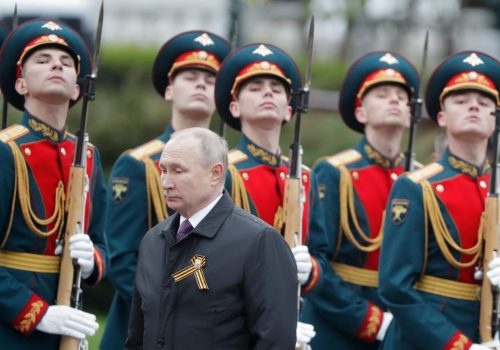As the global community continues to grapple with the coronavirus (COVID-19), the Atlantic Council is open for business. Our business, meetings, and events, however, are occurring virtually. For more information, please read an update from our President and CEO.
Cyber operations have perhaps unexpectedly jumped to the top of the US-Russia agenda in recent months. For years, cyber operations from Russia have been growing, conducted by both Russia’s security and intelligence services, and cyber criminals. Over the past four months, a series of widely reported criminal attacks have brought new attention to the relationship. Ransomware targeting an oil pipeline operator and meat producer before the Summit in Geneva prompted President Biden to warn President Putin that the US would respond strongly if attacks from Russian targeted any of the United States 16 critical infrastructure sectors. Weeks after the meeting, another criminal group launched another widely reported ransomware attack targeting hundreds of companies globally. This led Biden to lay down another warning to Putin in a phone call one week after the attacks, saying that the US would take “any necessary action” to defend itself.
In the aftermath of these events, some have suggested the administration’s failure to offer more than a rhetorical response after Geneva exhibits a loss of American credibility while others argue the events are largely outside the control of the Russian state. The July 13 news that REvil, the Russian ransomware group involved in the latest attacks, has vanished from the web suggests that some action has been taken.
This panel of experts will look at the developments of the past six months and the tools which are on the table for a US government response. What are the real dynamics at play between official Kremlin cyber operations and the criminal groups that have conducted the vast majority of these attacks? With little indication that “cyber conflict” is going away any time soon, what do policymakers, businesses, infrastructure operators, and everyday citizens need to know about these increasingly dangerous digital threats?
Dmitri Alperovitch, executive chairman at Silverado Policy Accelerator and co-founder of CrowdStrike, Katie Nickels, director of intelligence at Red Canary and nonresident senior fellow at the Atlantic Council’s Cyber Statecraft Initiative, Matthew Rojansky, director of the Wilson Center’s Kennan Institute, and Dr. Louise Shelley, director of the Terrorism, Transnational Crime and Corruption Center at George Mason University, join to discuss how the US and its partners can deal with the new Kremlin cyber crisis. Ambassador John Herbst, director of the Atlantic Council’s Eurasia Center, moderates.
This event will not feature an in-person audience. You will be able to join via desktop or mobile app, through your web browser, or by phone. To join the question and answer period, you must join by app or web.
Register below for details on joining the virtual audience.




